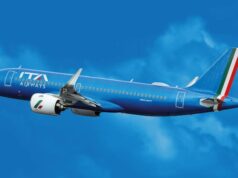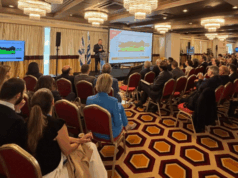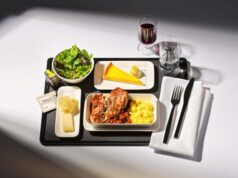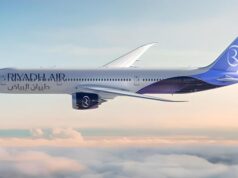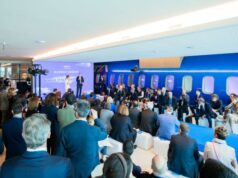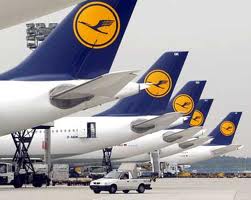 Lufthansa Group posts operating profit in second quarter / European traffic still under pressure / Full-year: Increase of Group operating result in line with market expectations anticipated
Lufthansa Group posts operating profit in second quarter / European traffic still under pressure / Full-year: Increase of Group operating result in line with market expectations anticipated
Deutsche Lufthansa AG has posted an operating profit of 159 million euros for the second quarter of 2010, more than tripling the figure for the second quarter in 2009. The recovery in demand, particularly in cargo and intercontinental traffic, and the efforts to reduce costs in all areas of the Group during the past months played decisive roles in recording the positive result. However, the severe winter, the strike by the pilots’ union, Vereinigung Cockpit, the airspace lockdown after the volcano eruption on Iceland and the continued slump in prices all took their toll and had negative effects during the first six months of the year. The Lufthansa Group therefore posted an operating loss of 171 million euros for the first half of the year; the figure is 179 million euros less than during the same period of the previous year. Speaking at the presentation of the first-half results, Lufthansa Executive Board member and CFO Stephan Gemkow commented: “There is a noticeable recovery in First and Business Class bookings in the passenger business and the revenue from long-haul traffic. A good example of this is our A380 with the new First Class, which has had an excellent load factor in all classes since entering scheduled service on the Frankfurt–Tokyo route. Nevertheless, despite our delight with the very good second quarter, we have not yet succeeded in matching the results of earlier years.”
Gemkow went on to add: “We shall continue with the sustained implementation of our cost-cutting measures, particularly in the face of the current slump in prices and altered demand in short-haul traffic. The pay settlements concluded with the pilots’ union, Vereinigung Cockpit, and ver.di mean that ground staff and cockpit crews made an essential contribution.” Although the Passenger Airline Group posted an operating profit for the second quarter, the business segment ended the first six months with a significant operating loss of 342 million euros, of which -203 million euros were accounted for by Lufthansa Passenger Airlines. The Climb 2011 programme to safeguard earnings at Lufthansa Passenger Airlines will therefore continue to be consistently implemented and the same applies for the restructuring measures that are progressing according to plan at the new airlines. Austrian Airlines contributed a loss of 70 million euros to the operating result of the Passenger Airline Group; bmi and Germanwings contributed losses of 93 million and 39 million euros respectively; while SWISS made a positive contribution of 54 million euros.
Referring to the logistics business segment, Gemkow stated: “The freight business shows that consistent cost management also pays off during market recovery phases. After implementing intensive measures to improve its result, Lufthansa Cargo went on to record the best first-half result in its history – a truly remarkable performance!” The business segment earned an operating profit of 144 million euros for the first half of the year; the figure is 278 million euros higher than during the same period of the previous year. MRO and IT Services also ended the first six months successfully posting operating profits slightly above the previous year’s figure; MRO posted operating profit of 145 million and IT Services recorded a figure of eight million euros. And the Catering business segment also benefited from the recovery in demand and posted a distinctly positive operating result of 13 million euros.
Gemkow added that for the coming months, the risks would lie as usual in the volatility surrounding the demand situation, the development of fuel prices and the susceptibility of the industry to external factors. He pointed out however, that the dynamic trend in the development of business during the past months had strengthened the Group’s confidence in achieving its profitability targets. Gemkow added that for the current business year, the Executive Board therefore continued to anticipate a rise in revenue and year-on-year increase in operating profit in line with current market expectations; and that he expected all of the business segments to contribute with positive operating results. In the interim report for the first six months, the Group’s Executive Board stressed that: “Airlines are not only an engine of the economy, but also convert and multiply an economic recovery into their own growth. However, the market conditions for this have changed and only those that adapt to the new conditions will be able to benefit from the opportunity of above-average growth. We are convinced that the Lufthansa Group and its Group companies shall succeed in doing so!”
First-half figures 2010
During the first six months of 2010, the Lufthansa Group generated revenues totalling
12.6 billion euros; equivalent to a year-on-year increase of 23.5 per cent. The traffic revenue rose by 30 per cent to 7.8 billion euros. During the reporting period, the Group’s operating income increased by altogether 22.2 per cent to 14.2 billion euros.
Operating expenses rose by 22.9 per cent to 14.2 billion euros during the first half of the year. This was mainly due to the higher fuel costs which rose by 874 million euros; this was equivalent to a year-on-year increase of 56.1 per cent, which was both price and volume related. The fees and charges were 29 per cent above the previous year’s figure.
The Group recorded an operating loss of 171 million euros for the first half of the year,
179 million euros less than during the same period of the previous year. The decline can mainly be attributed to the negative result in the Passenger Airline Group business segment. The Group posted a result of -104 million euros; during the same period last year, it stood at -178 million euros.
Lufthansa’s capital expenditure during the reporting period totalled 974 million euros, of which 184 million euros were spent on the expansion and modernization of the fleet. Operating cash flow totalled 1.4 billion euros, the free cash flow (operating cash flow minus net investments) stood at one billion euros. At the close of the first half, the Group’s net indebtedness stood at 1.8 billion euros. In comparison to the figure at the end of 2009, portfolio measures saw the Group’s equity ratio increase to 24.3 per cent.


